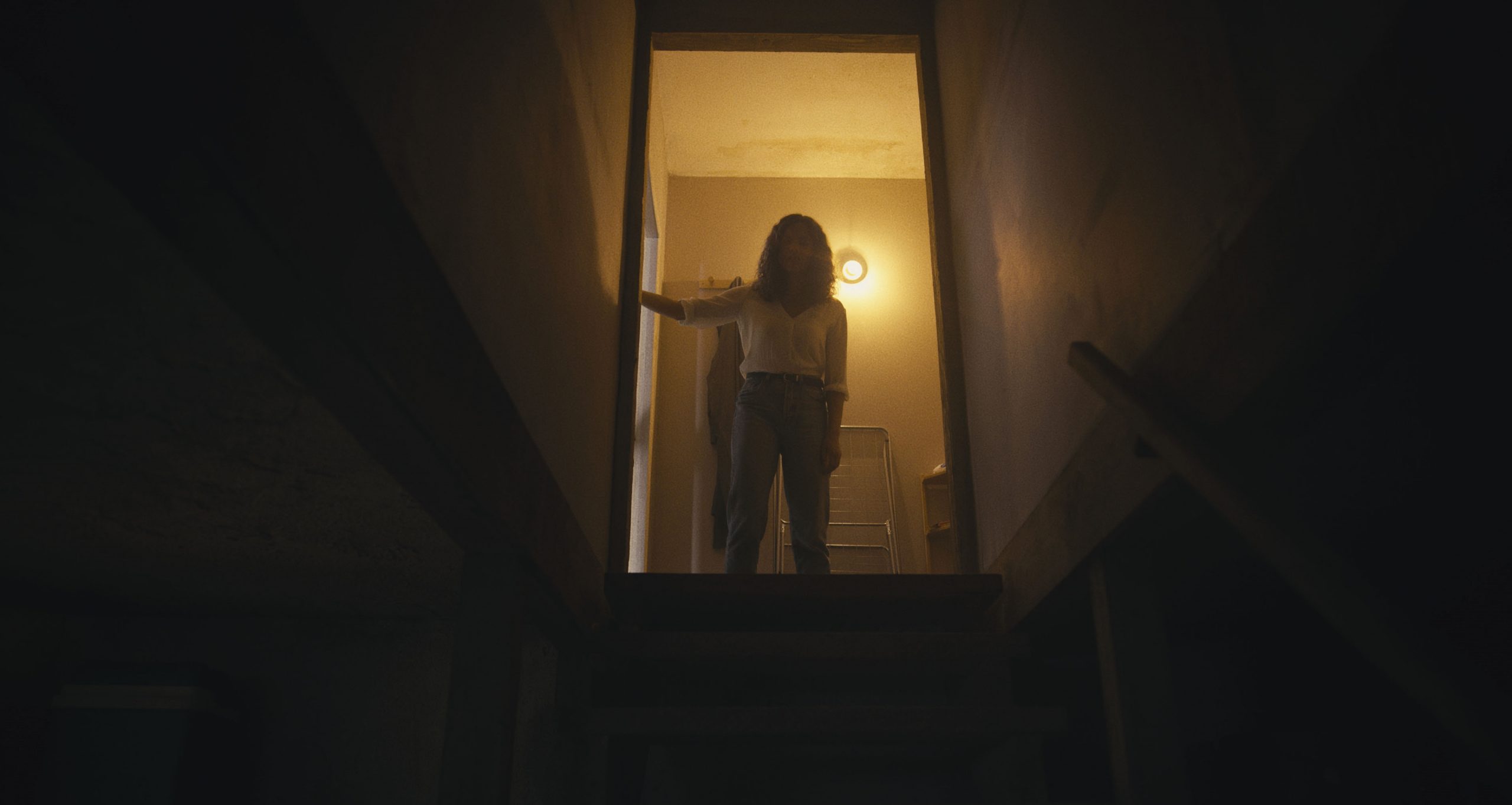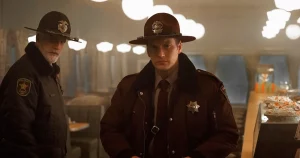Barbarian (2022)
Some stay for a night. Some stay for a week. Some never leave.
It’s a dark and stormy night, and Tess Marshall (Georgina Campbell) is in rustbelt Detroit for a job interview. She’s booked a house in a nigh-derelict neighborhood through an Airbnb-type service, and the well-kept little bungalow is the only intact property on an otherwise apocalyptic street.
Unfortunately, the place has been double booked, and Keith Toshko (Bill Skarsgård) is already there, having snagged the joint through another app. He’s a bit awkward and borderline creepy, but the weather is coming in hard, all the hotels in the city are booked due to some kind of convention on that weekend, and turning up to her interview after sleeping in her car will do her no favors. Weighing up the risks, she steps inside …
Now, in a rom-com, this would be a meet-cute, and it’s easy to imagine Sandra Bullock or Julia Roberts ringing the doorbell in a ‘90s programmer. But Barbarian, which comes to us from comedy veteran and debuting solo* feature director Zach Cregger, The Whitest Kids U’ Know (2007 – 11), is a horror movie which gives us a whole different set of expectations. Keith could be a serial killer, for one thing. But Cregger takes us in a stranger, smarter, and more terrifying direction than that.
Barbarian is great. It’s also worth going into unspoiled, but I need to talk about some material you’d be better off discovering on your own in order to really grapple with the film so, as I’ve said so often before: stop here if it sounds like your jam, and get along to this intelligent, allegorical, contemporary horror flick. For those inured to spoilers or who’ve already seen the film and want to dig into it a bit, read on.
As it eventuates, that the short-term rental is a house of horrors. There’s a secret basement where women have been kept captive and tortured for years, and a horrific, decrepit figure, dubbed “The Mother” in the script (Matthew Patrick Davis), who is the product of rape, the child of one of the numerous women who have been kidnapped and kept there and the man responsible, Frank (Richard Brake, who offed Bruce Wayne’s parents in 2005’s Batman Begins). Barbarian functions exceptionally well as a straight-forward “bad place” horror (The Suburbs Have Eyes?), with a grotesque creature hunting our hapless heroine through a dank and foreboding location (the house itself, of course, but also the neighborhood outside and, by implication, Detroit itself). But it gets really interesting when it zooms out a bit to give us some context.
So yes, there’s a beast in the basement, and yes, there’s a creepy rape dungeon, but the villain here is the real estate industry and the parasites who feed off it. The twin forces of gentrification and urban decay are rumbling quietly in the background of Barbarian, but what enables the evil to fester is the profit-first, hands-off, short-term approach to housing. Tess and Keith are only thrown together because the rental has been double booked through different services, and neither can reach their nominal point of contact. AJ barely remembers buying the place; it’s a line item on his portfolio. As long as the bills are being paid, the short-term rent is coming in, and a cleaning subcontractor takes a run at the house in between rentals, this little nexus of evil can keep on keeping on in perpetuity. When profit is the only motive, any ethical considerations are out the window.
Which makes Barbarian a timely work, as anyone who has dealt with the ongoing housing affordability crisis can understand (I assume that’s most of you). Comparisons have been drawn with the recent Don’t Breathe duology starring Stephen Lang, but for my money, the perfect double feature would be Barbarian and The People Under the Stairs, Wes Craven’s underappreciated 1991 horror comedy.
And for all its horrors and its serious metaphorical intent, Barbarian is very funny, as long as your sense of humor trends dark. Discovering the extensive chambers excavated in the basement, AJ whips out his tape measure, the prospect of square footage adding to the property value blinding him to the evidence of evil around him. Finally getting the attention of a couple of cops, Tess is horrified to discover they’re more concerned about the property damage she’s done to the house than whatever horrors may lurk within, dismissing her tale as crack-whore babbling. It’s bleakly hilarious stuff.
The thing about this sort of stuff, these kinds of socially conscious genre movies, is that they don’t really move the needle when it comes to change. John Carpenter’s They Live (1988) is an absolute banger, but it’s not like it put the brakes on Reaganomics (in point of fact, we’re still dealing with the awful outcomes). So don’t for a second think I’m here expecting Barbarian to be some kind of rallying cry.
But there’s value in feeling seen, in knowing that there are others out there who can see the same bullshit you can, that we’re all under the same yoke. Barbarian works just fine as a straight-forward horror movie, but it’s this element that pushes it up a level, and anyone who has sung enthusiastically to Dead Kennedys “Let’s Lynch the Landlord” or simply fumed over a tardy rental repair (20 months and counting for my busted intercom) will get a kick out of Barbarian.
4 / 5 – Recommended
Reviewed by Travis Johnson
Barbarian is released through 20th Century Fox Australia



